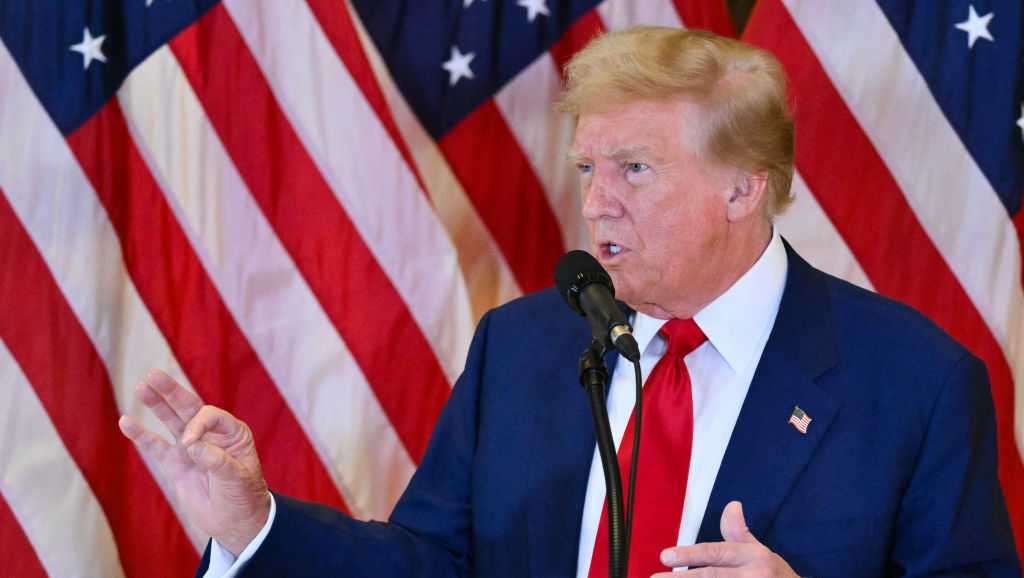The Supreme Court will hear arguments in a case about President Donald Trump’s executive order on birthright citizenship Thursday, while addressing a broader issue over the clash between the judicial and executive branches of government.Through an executive order signed his first day in office, President Trump is challenging the 14th Amendment to end birthright citizenship, arguing its sole purpose was to grant citizenship to slaves after the Civil War. He argues the law does not apply to granting citizenship to children born to parents in the U.S. illegally or temporarily.”I think the case has been so misunderstood,” Trump said. “If you look at it that way, the case is an easy case to win.”The case reaches the nation’s highest court after three lower courts ruled to stop the order nationwide. The Trump administration is now asking the justices to narrow the lower courts’ authority to strictly the jurisdictions they oversee.The administration’s arguments and actions suggest the White House is trying to sidestep the judiciary, questioning who has the final say on the law.”It very clearly says that all persons born in the United States are citizens of the United States, first and foremost,” Paul Schiff Berman from the George Washington University Law School, said. “An executive action that simply says, ‘this is what the Constitution says’ is very rare, and I think really encroaches on the domain of the judiciary.”While the birthright citizenship issue is argued further in court, the administration wants Trump’s order to temporarily apply to everyone except those who are suing over it, which includes 22 states and the District of Columbia.But if the Supreme Court agrees with the administration, district or appeals court rulings would only apply to the regions they oversee, creating a patchwork of rules and potentially more work for the Supreme Court to referee. Using the birthright citizenship order as an example, citizenship for a child born to noncitizen parents would depend on what state they were born in until the case is ultimately settled. A ruling is expected by late June or early July.
The Supreme Court will hear arguments in a case about President Donald Trump’s executive order on birthright citizenship Thursday, while addressing a broader issue over the clash between the judicial and executive branches of government.
Through an executive order signed his first day in office, President Trump is challenging the 14th Amendment to end birthright citizenship, arguing its sole purpose was to grant citizenship to slaves after the Civil War. He argues the law does not apply to granting citizenship to children born to parents in the U.S. illegally or temporarily.
“I think the case has been so misunderstood,” Trump said. “If you look at it that way, the case is an easy case to win.”
The case reaches the nation’s highest court after three lower courts ruled to stop the order nationwide. The Trump administration is now asking the justices to narrow the lower courts’ authority to strictly the jurisdictions they oversee.
The administration’s arguments and actions suggest the White House is trying to sidestep the judiciary, questioning who has the final say on the law.
“It very clearly says that all persons born in the United States are citizens of the United States, first and foremost,” Paul Schiff Berman from the George Washington University Law School, said. “An executive action that simply says, ‘this is what the Constitution says’ is very rare, and I think really encroaches on the domain of the judiciary.”
While the birthright citizenship issue is argued further in court, the administration wants Trump’s order to temporarily apply to everyone except those who are suing over it, which includes 22 states and the District of Columbia.
But if the Supreme Court agrees with the administration, district or appeals court rulings would only apply to the regions they oversee, creating a patchwork of rules and potentially more work for the Supreme Court to referee.
Using the birthright citizenship order as an example, citizenship for a child born to noncitizen parents would depend on what state they were born in until the case is ultimately settled.
A ruling is expected by late June or early July.



